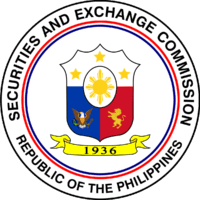Don’t fall for fake invoices sent to steal your money.
False billing schemes demand you to pay fraudulent invoices for a range of standard business supplies and operations, including directory listings, domain name renewals, promotions, or even office stationary. Unfortunately, it is all too easy to fulfil this request without flagging the forged information first.
If you believe you have been targeted by a false billing scam, please contact our fraud investigators urgently. We can uncover actionable evidence across the globe to give you more power to prosecute the scammer and recover your losses.
As featured on
Common types of false billing scheme
Fake directories and promotions
Fake directory scams often ask you to fill out a form with your business contact details and signature. You might be promised an exclusive deal in return, but this form is actually an invoice or contract that attempts to conceal the amount owed in miniscule print.
This scam can also take the form of a subscription proposal or renewal for legitimate directory publishers. The aim is for your business to pay the invoice without question.
Alternatively, the scammer might ask your business to confirm details for an advertisement they claim has been already booked. If you reject their payment request, the orchestrator might threaten legal action to push you over the line.
False domain name renewals
In Australia, website domain names must be registered with domain name registrars and resellers who are accredited via the .au Domain Administrator (auDA). Every few years, this registration will need to be renewed.
False domain name renewal scams can occur when the orchestrator demands payment for a domain name that, at a glance, looks just like yours. Without realising the slight discrepancies, it’s easy to pay the invoice.
On the other hand, you might receive something that appears to be a renewal notice for your domain name, but is from a different sender to your original registrar or reseller. The sender will disguise their desire to steal your money with the claim that they are giving you the chance to secure the domain name before another company.
Payment redirection fraud
With payment redirection fraud, a scammer uses hacked information to impersonate one of your existing suppliers and claim that they have updated their banking details. The offender might even feature a stolen letterhead and branding on their communications to appear genuine.
The aim is to redirect any future payments to their own bank account. Unfortunately, you might only find out the truth when your actual supplier inquires as to why their invoices are still outstanding.
Office supply scams
An office supply scam works by sending and charging you for goods or services that you did not order, such as stationary or advertising. The scammer may pose as your regular supplier, calling or emailing you to promote a ‘special offer’. In reality, the items are typically overpriced and poor quality.
You might also be hit with an additional invoice or notice claiming that you have agreed to an ongoing supplier contract – all in the hopes that you will pay without verifying it.
False billing scheme investigators with a proven track record
Global reputation
IFW is renowned around the world for its unrivalled ability to unearth evidence and crack down on false billing scams. Our highly-skilled investigators, researchers and analysts bring the truth to light with exceptional prowess.
Dynamic investigations
We conduct all false billing scheme investigations with proactive solutions that evolve with each discovery. Our dynamic investigations leverage direct access to local databases, expert witnesses in cyber fraud, and a network of confidential informants.
Invaluable connections
Our investigators draw upon powerful relationships with state, federal and international law enforcement agencies across the globe. We may also liaise with local and foreign correspondent lawyers to track down money trails and hidden assets in almost any jurisdiction.
Admissible evidence
Being swindled by a false billing scam can be financially crippling. To help you seek justice and recover your losses, we will provide you with a rigorous brief of evidence for use in criminal proceedings within the relevant jurisdiction.
Complete discretion
IFW actions every false billing scheme investigation with unparalleled professionalism and sensitivity. Enjoy peace of mind that every piece of personal data is encrypted to protect your privacy. Confidential case details will only ever be disclosed with your consent.
Frequently asked questions
Top-
False billing refers to scams that ask you or your business to pay a fraudulent invoice for marketing, directory listings, domain services or supplies that you never actually ordered.
One of the most common forms of billing schemes is run behind the facade of a shell company, which is a fake entity set up exclusively for anonymity. As a result, it is extremely challenging to track down funds going into and out of their accounts. You can monitor for shell company schemes by organising payments by vendor, invoice number, amount and physical address. This sorting will help to highlight any red flags, such as a lack of detail on invoices.
Another type of false billing depends on the modification or duplicate payment of a seller’s invoice. In this case, the scammer sends a fake invoice in the name of a legitimate vendor, who likely has no idea that this crime is occurring. To identify this fraud, compare mailing addresses or electronic payments information with your records for vendors and search for duplicate payments.
A third kind of false billing involves buying personal goods or services with the company credit card. This scam can be spotted by comparing credit card statements with employee expenses, keeping an eye on card expenses for an unexplained increase and identifying connections between certain purchases and specific cardholders at the time.
-
A false billing scheme usually has three key components:
- A fictitious entity, such as a shell company, is created to receive payments.
- A false invoice is generated or a legitimate invoice is altered for payment.
- The payments system is manipulated so that the false invoice is approved and the funds are transferred.
As the above steps can take all kinds of forms, it is important to be aware of the various red flags of false billing fraud.
-
The warning signs of false billing include:
- An invoice or phone call confirming your listing or promotion from a business directory or other organisation that you do not know.
- An invoice for a domain registration or renewal. This fee may be unusually high or registered with a different provider, whose name may be similar to your current provider’s.
- An invoice for goods or services that you have not ordered.
- A free gift offered to your staff by an organisation that you’ve never heard of. This gift may be delivered along with other items that your team member did not order.
If any of these red flags sounds familiar, you may have been targeted by a false billing scheme. Please contact IFW Global to arrange an investigation today.
-
There are several steps you can take to protect yourself against a false billing scheme:
- Always request a business proposal in writing. Do not agree to any dealings over the phone.
- Before paying for an invoice, ensure that any goods or services have been both ordered and delivered. Don’t forget to read the fine print properly.
- Minimise the number of staff members who are permitted to make orders or pay invoices.
- Never pay for a directory entry that you did not authorise, and always receive proof of your listing before paying an invoice.
- If it comes to your attention that a supplier’s bank account details have been updated, call them to confirm these changes before paying any of their invoices.
-
If you suspect that you have been targeted by medical billing fraud, please follow the below measures immediately:
- Notify your financial institution(s) of the scam immediately so that they can freeze your accounts and credit cards.
- File a complaint with the Australian Securities & Investment Commission (ASIC), the organisation responsible for dealing with false billing scams in Australia.
- Report the scam to the ACCC’s Scamwatch.
- Report any stolen funds to your local police.
Last but certainly not least, contact IFW as soon as possible to book a consultation for your investigation.
-
False billing schemes tend to take between one and three months to investigate, but this is only a rough estimate. Ultimately, the duration of your investigation rests in the sophistication of the scheme and whether or not you intend to bring the scammer to Court.
If the orchestrator behind the scheme is successfully tracked down, our investigators can work with law enforcement officials to help file search warrants and/or criminal charges. This is a complicated and time-consuming process that will likely extend the overall time frame.
-
The cost of a false billing scam investigation varies according to its complexity and scope, the amount of losses incurred, and the jurisdiction in which the scheme was executed.
Before launching into your investigation, our investigators will provide you with a personalised proposal that explains the advised budget to maximise the likelihood of a successful result.
-
The likelihood of a successful investigation depends on the exact circumstances of your case. The greater the actionable evidence our investigators gather, the higher the chances that you will be equipped to take legal action against the fraudster.
To estimate the probability of hunting down the criminal who stole from you, we will perform a preliminary assessment of your case. Armed with our expert insight, you may decide whether or not to go ahead with the false billing scam investigation.












 Philippines National Police
Philippines National Police  Californian Association of Licensed Investigators
Californian Association of Licensed Investigators  NSW Police Force
NSW Police Force  Philippine Securities and Exchange Commission
Philippine Securities and Exchange Commission 